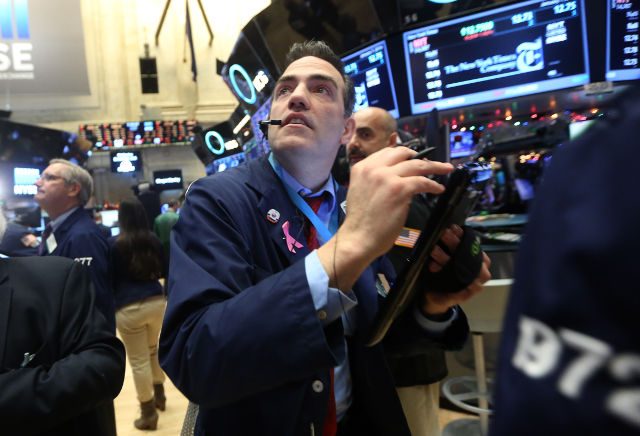SUMMARY
This is AI generated summarization, which may have errors. For context, always refer to the full article.

NEW YORK, USA – Stock markets across the globe slumped and oil plumbed new depths Thursday, January 7, as signs of a dramatic slowdown in powerhouse China put fright into investors about the outlook for the global economy.
Another cut in the value of the Chinese yuan triggered a plunge in shares on Chinese exchanges, leading to the second suspension of trading on the Shanghai exchange this week.
That was followed by a tidal wave of losses in global bourses, equity markets from Tokyo to Frankfurt to New York to Mexico City generally shedding between 2% and 3%.
On Wall Street, the broad-based US S&P 500 index sank 2.4% to leave it down nearly 5% for the year, marking the worst 4-day open to a year in index history, said S&P Capital IQ.
“Right now the mentality is reduced-risk exposure across the board,” said Michael James, managing director of equity trading at Wedbush Securities.
“The fear is that things could worsen and I’d rather be selling now in advance of any potential weakening of indices.”
Chinese stock markets were in full disarray Thursday, halting trading within just 30 minutes of opening as prices slumped 7% and triggered the “circuit breaker”.
Officials suspended the mechanism late Thursday, after judging it was doing more harm than good.
Chinese authorities lowered the yuan’s central rate against the US dollar by 0.51 percent to 6.5646, the lowest since March 2011.
“It’s probably inevitable that China’s exchange rate needed to fall to reflect its slowing economy. But it’s the speed of the current devaluation that has investors unnerved,” said Jasper Lawler, an analyst at CMC Markets UK.
“A slower pace of yuan devaluation would at least give investors and European exporters a chance to adjust to the new normal.”
Share prices in the energy-rich Gulf states fell sharply, with the Saudi exchange’s main index slumping 4.5 percent as oil prices hit a 12-year low.
‘Dangerous cocktail’
British finance minister George Osborne warned the economy faces a “dangerous cocktail of new threats” in 2016.
“We are only 7 days into the New Year, and already we’ve had worrying news about stock market falls around the world, the slowdown in China, deep problems in Brazil and in Russia,” Osborne said in a speech to business leaders in Wales, according to prepared remarks.
“Last year was the worst for global growth since the crash and this year opens with a dangerous cocktail of new threats.”
American financier George Soros warned that world markets were showing signs of a financial crisis reminiscent of the 2008 crash.
A weaker yuan is “inflicting deflationary pressures” on the rest of the world, he told the Sri Lanka Economic Forum.
“When I look at the financial markets, there I see a serious challenge, which reminds me of actually the crisis we had in 2008.”
But Chris Low, chief economist at FTN Financial, said the situation is still a far cry from 2008.
Global markets always experience volatility after the Federal Reserve begins lifting interest rates as it did in December. That move put additional pressure on the Chinese yuan, among other currencies, he said.
“It’s not unusual,” Low said. “It seems like this is pretty typical behavior in any rate cycle.” – John Biers, AFP/Rappler.com
Add a comment
How does this make you feel?
There are no comments yet. Add your comment to start the conversation.